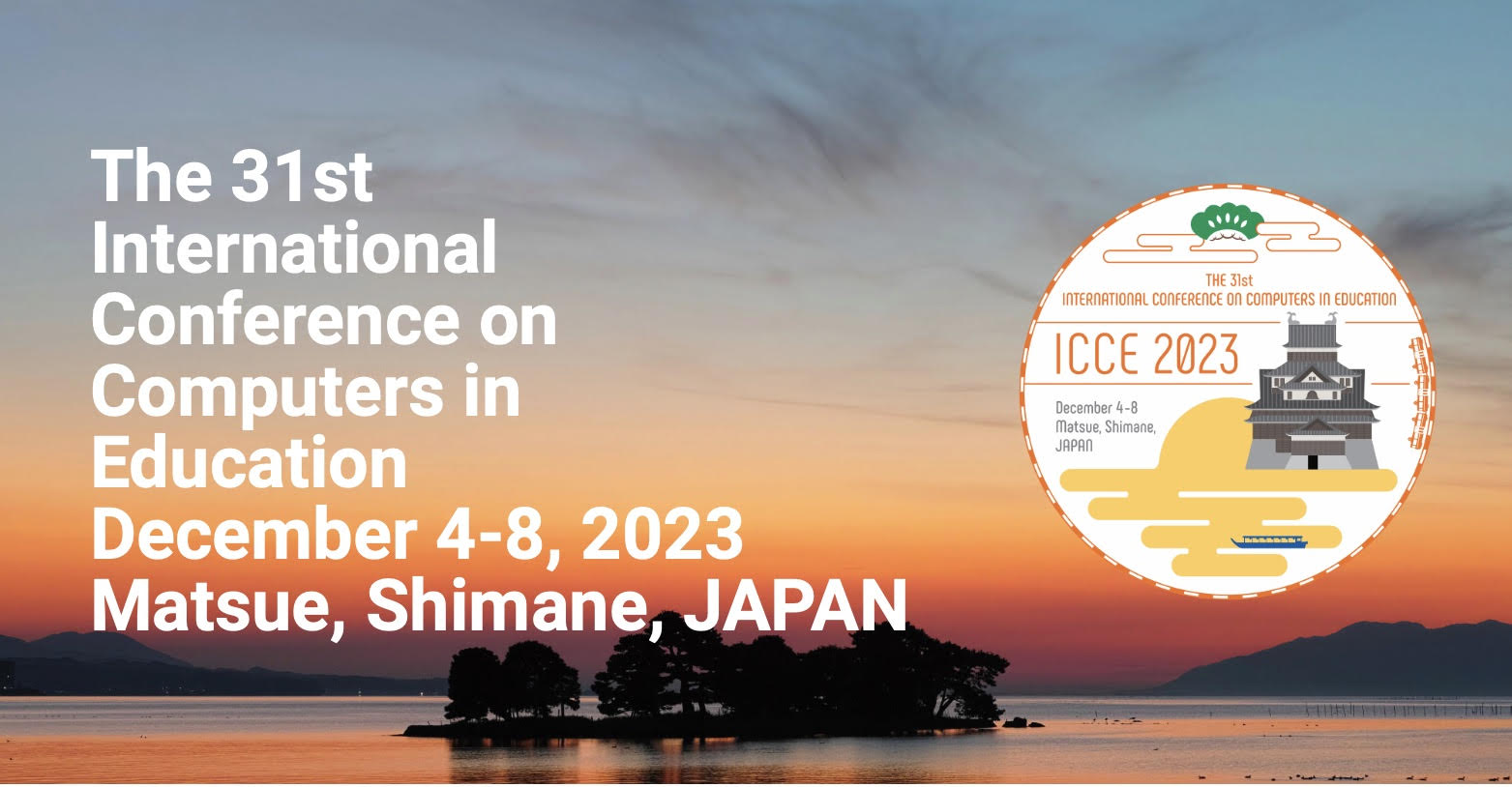TIDE at ICCE2023, keynote and three papers on Multimodal assessment of a classroom-adapted self-regulatory relaxation task, Learning design for teachers' practice-driven research, AI
TIDE at ICCE2023, keynote and three papers on Multimodal assessment of a classroom-adapted self-regulatory relaxation task, Learning design for teachers' practice-driven research, AI
TIDE at ICCE2023, keynote and three papers on Multimodal assessment of a classroom-adapted self-regulatory relaxation task, Learning design for teachers' practice-driven research, AI

TIDE-UPF will present two papers at the The 31st International Conference on Computers in Education, held in Matsue, Japan in December.
Davinia Hernández-Leo, head of TIDE, will be also giving a keynote.
Marc Beardsley, Batuhan Sayis & Marta Portero-Tresserra, Multimodal Assessment of an Ultra-Brief Practice of Progressive Muscular Relaxation Adapted for the Classroom, 31st International Conference on Computers in Education, Japan, December 2023.
Abstract. Progressive muscular relaxation (PMR) is a technique often used in clinical settings for reducing physical symptoms of anxiety and improving well-being. This paper presents a comparison of psychological and physiological effects of an ultra- brief, video-guided PMR activity (uPMR) that has been adapted for classroom settings and a time-matched control activity (CA); and student opinions of uPMR to gauge its acceptability for use in formal educational settings. Forty undergraduate students (18- 25 years) from a Spanish university participated in the study in which measures of state anxiety (State-Trait Anxiety Inventory, STAI), affect (Affective Slider, AS), and parasympathetic nervous system (PNS) activity indexed via the heart-rate variability parameter root mean square of successive differences (RMSSD) were conducted. Results show that RMSSD was significantly higher during uPMR than when measured before. The same effects were not found with CA. Additionally, participants rated the design of uPMR more favorably and acceptable for use in formal educational settings than CA. Significant changes in affect and state anxiety; and sustained physiological effects were not detected, suggesting that the brevity of the activity may dampen its effects. The findings related to the physiological effects and student opinions support the notion that uPMR possesses promising characteristics for use in situated teaching and practice of self-regulatory techniques aimed at reducing physiological arousal on an acute basis. Hence, it can be considered an appropriate activity to integrate into technologies that support teachers in creating opportunities for self-regulation in the classroom and guiding students through evidence-based self-regulation practices.
Marc Beardsley, Davinia Hernández-Leo & Roberto Sánchez-Reina, Using Learning Design Technologies for Teachers’ Practice-Driven Research, 31st International Conference on Computers in Education, Japan, December 2023.
Abstract. This paper presents two case studies related to developing educational technologies paired with teacher professional development (PD) courses to support practice-driven research among teachers. The case studies emerged from multidisciplinary projects involving schoolteachers and researchers. The first project supports teacher use of evidence-based teaching strategies that align with the science of learning such as retrieval practice and distributed practice. The second project supports teachers in helping students learn to manage stress using evidence-based self-regulation techniques such as mindfulness and cognitive reappraisal. The projects fuse together concepts of teacher inquiry, learning design, online communities of teachers, and open educational resources to support teacher practice-driven research. An overview of teacher-generated research and impressions of the PD courses gathered during piloting are presented along with descriptions of the two supporting technologies. Implications for practice are also shared.
Cansu Koyuturk, Mona Yavari, Emily Theophilou, Sathya Bursic, Gregor Donabauer, Alessia Telari, Alessia Testa, Alessandro Gabbiadini, Davinia Hernandez-Leo, Martin Ruskov, Dimitri Ognibene, Developing Effective Educational Chatbots with ChatGPT: Insights from Preliminary Tests in a Case Study on Social Media Literacy, 31st International Conference on Computers in Education, Japan, December 2023. https://arxiv.org/abs/2306.10645
Abstract. Educational chatbots come with a promise of interactive and personalized learning experiences, yet their development has been limited by the restricted free interaction capabilities of available platforms and the difficulty of encoding knowledge in a suitable format. Recent advances in language learning models with zero-shot learning capabilities, such as ChatGPT, suggest a new possibility for developing educational chatbots using a prompt-based approach. We present a case study with a simple system that enables mixed-turn chatbot interactions and we discuss the insights and preliminary guidelines obtained from initial tests. We examine ChatGPT's ability to pursue multiple interconnected learning objectives, adapt the educational activity to users' characteristics, such as culture, age, and level of education, and its ability to use diverse educational strategies and conversational styles. Although the results are encouraging, challenges are posed by the limited history maintained for the conversation and the highly structured form of responses by ChatGPT, as well as their variability, which can lead to an unexpected switch of the chatbot's role from a teacher to a therapist. We provide some initial guidelines to address these issues and to facilitate the development of effective educational chatbots.
